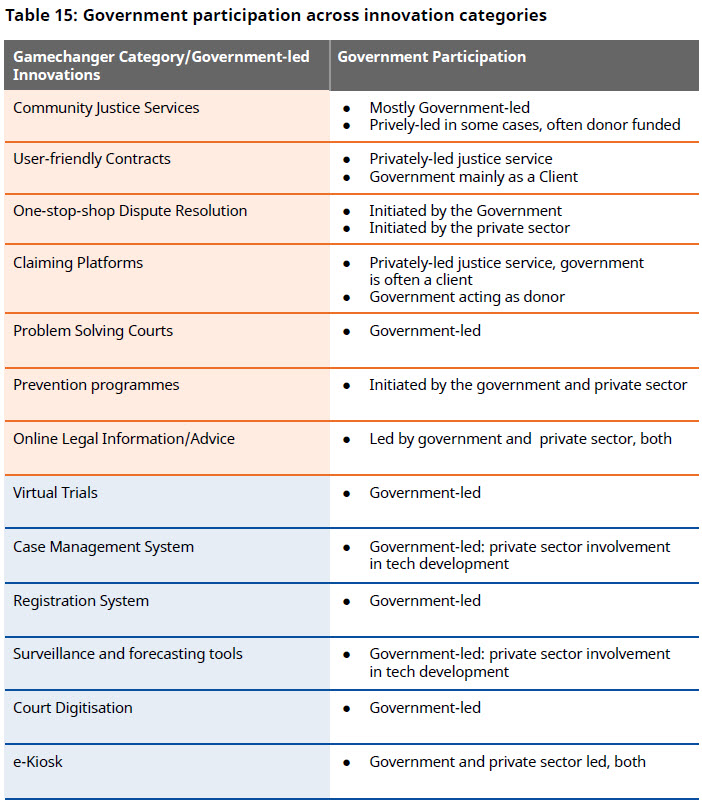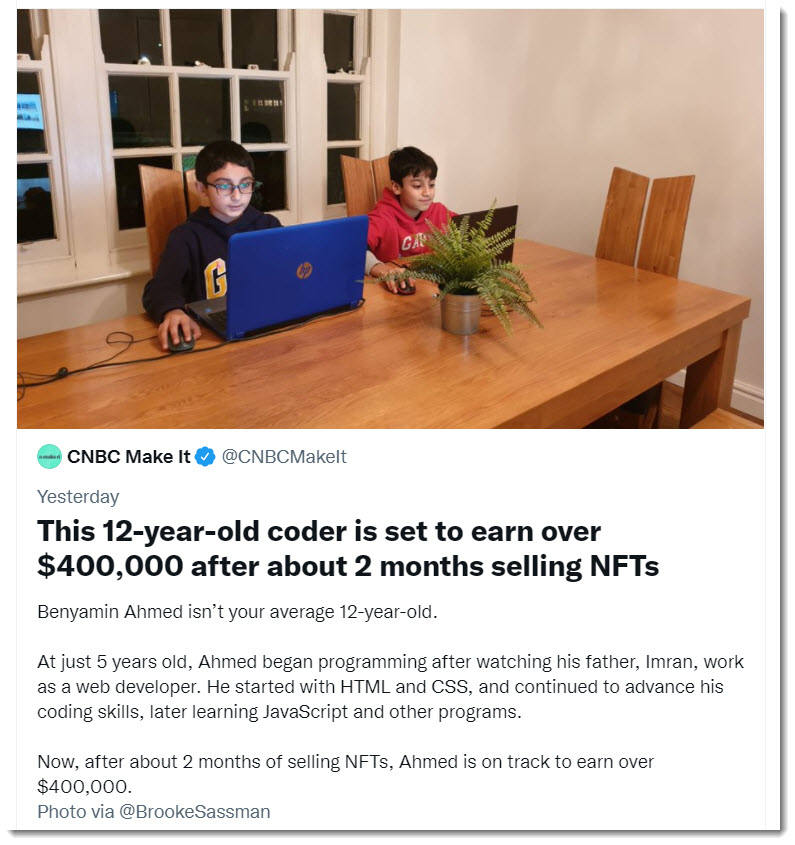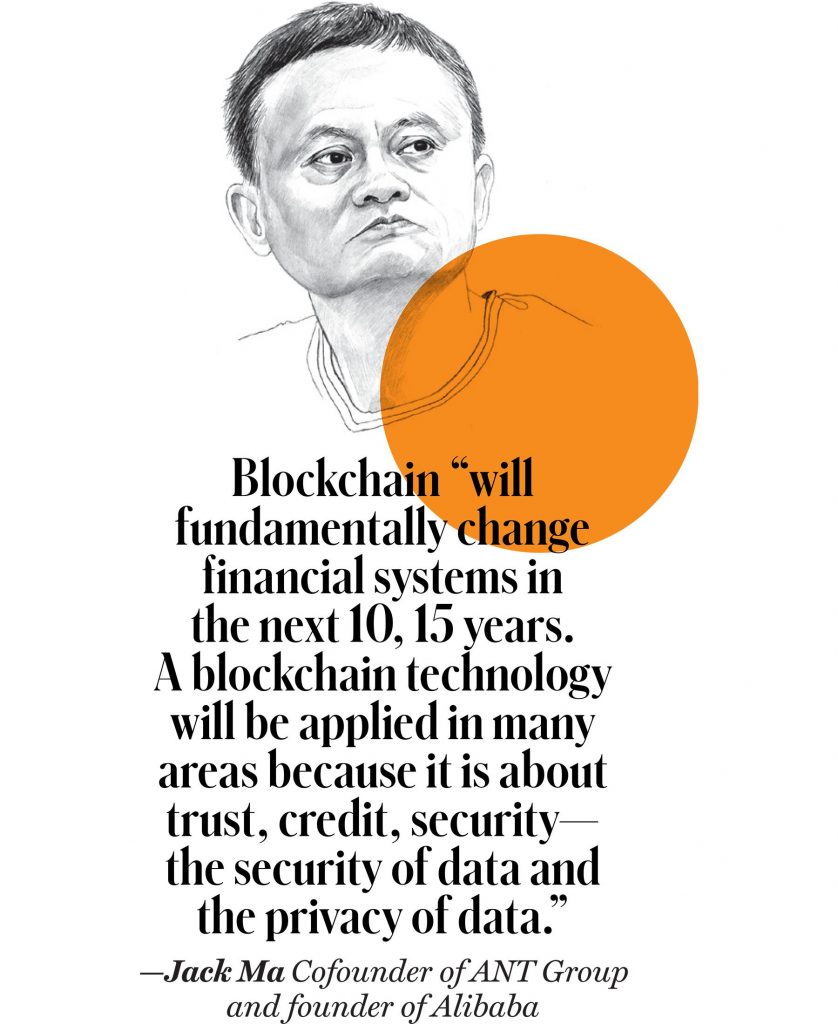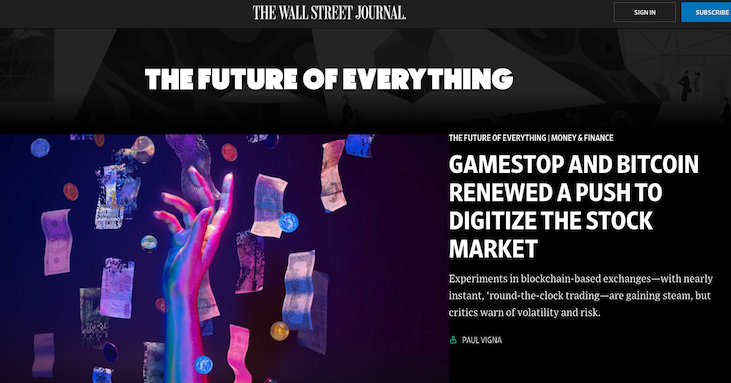Excerpt from “Use of digital technologies in judicial reform and access to justice cooperation — from HiiL (The Hague Institute for Innovation of Law)
All aboard: Bitcoin’s rise inspires even big banks to staff up on crypto talent — from linkedin.com by George Anders
Excerpt:
That’s according to a new analysis by LinkedIn’s Economic Graph team, which finds that major financial services firms will add more than three times as many staff steeped in digital-asset experience this year than in 2015. That pace jumped 40% in the first half of 2021 alone, compared with the same period last year.
“The opportunities in digital assets are plentiful,” BNY Mellon’s Roman Regelman, the bank’s CEO of asset servicing and head of digital, told LinkedIn News. “We can now attract talent in a very different way.”
Also relevant, see:
- Wharton’s New Crypto Course to Take Crypto for Tuition Fees — from insidehighered.com by Suzanne Smalley
Excerpt:
The Wharton School of the University of Pennsylvania last week announced it would become the first Ivy League school and the first American business school to accept enrollment payments in cryptocurrency via Coinbase. The announcement came alongside news that the prestigious business school also has launched an online certificate program focused on the economics of blockchain and digital assets.
The Metaverse is Taking Over the Physical World — from interestingengineering.com by Rupendra Brahambhatt; with thanks to Dan Lejerskar for this resource
The virtual world is expanding with real world avatars and digital economy.
Excerpt:
The advent of AR, blockchain, and VR devices in the last few years has sparked the development of the metaverse. Moreover, the unprecedented growth of highly advanced technologies in the gaming industry, which offer immersive gameplay experiences, not only provides us a glimpse of how the metaverse would look like but also indicates that we are closer than ever to experience a virtual world of our own.
What is the metaverse?
 Source: Kelvin Han/Unsplash
Source: Kelvin Han/Unsplash
A metaverse is a group of persistent, shared 3D virtual environments where you (in the form of your digital avatar) can visit places, shop for products, subscribe to services, work with your colleagues, play games, and even customize the scenes around you to meet your personal tastes and requirements, and the digital assets you own. So essentially, a metaverse is a virtual world or worlds, that would allow you to go inside the digital world — to be in rather than on the digital space.
From DSC:
Again I wonder….on the legal side of things…how will this impact what lawyers, judges, legislators, general counsels, and more need to know? Along these lines see:
- What Skills Do Lawyers Need to Excel in a New Era of Business? — from jdsupra.com
To do this well, legal department heads and the lawyers and professionals in the department will have to learn, and practice, some new skills: embracing technology, project management, change management, and adaptability.
…
The first, and likely most obvious, skill an attorney needs in a rapidly evolving business environment is a firm grasp on existing and emerging technology. There are two important categories of technology to consider—the first is legal technology and the second is broader technology trends.
What is a Smart Contract Audit? — from 101blockchains.com by Gwyneth Iredale
Excerpt:
Blockchain applications use smart contracts for interacting with the blockchain, and smart contracts have profound security vulnerabilities. This is where you need a smart contract audit. You might be wondering about the definition of auditing a smart contract and the resources you need for the same. The following discussion offers you a detailed guide on smart contract auditing with an outline of its definition, types, and processes.
The Role of Blockchain in Web 3.0 — from blog.simbachain.com by Simba Chain
Excerpt:
The internet is a constantly evolving and growing place. As new sites and companies add to the internet with websites and programs, the way we use the internet is changing as we learn to adapt to the new technologies. Technology experts view the age of the internet we’re currently in as the end of Web 2.0 with the beginning of Web 3.0 just around the corner. Since Web 3.0 has been spurred on by the advancements of blockchain technology, we thought we would take this opportunity to explain how they are connected. What is Web 3.0 and how does it use blockchain technology? Let’s find out…
Learning technology lessons from the front lines — from chieflearningofficer.com by Neda Schlictman
Deloitte’s accelerated rollout of its global LXP during the initial onslaught of the pandemic yielded many lessons for the organization. Following are insights for those who are seeking what’s next for their learning strategies.
Excerpt (emphasis DSC):
More than 330,000 people at Deloitte, across 170 countries, have access to Cura, which aggregates learning content from both internal and external sources and personalizes learning based on the user’s defined skills and interests. Cura enables individual discovery of learning but also allows users to follow prescribed pathways as well as the opportunity to create content.

Blockchain 50 2021 — from forbes.com by Michael del Castillo
(From DSC: I missed this one…yet wanted to get this out there.)
Excerpt:
No longer dismissed as a haven for criminals and drug dealers, Bitcoin and blockchain have gone mainstream. Bitcoin’s 2020 surge grabbed the attention of C-suite executives worldwide; not only are companies employing the technology underlying Bitcoin to perform tasks such as reconciling invoices and verifying product provenance, but dozens are now holding Bitcoin as a treasury asset. Our third annual Blockchain 50 features companies that lead in employing distributed ledger technology and have revenue or a valuation of at least $1 billion. Twenty-one newcomers—including the world’s largest bank, the Industrial and Commercial Bank of China, and four others from Asia—make their debut. They take the spots of such U.S. companies as Facebook, Google, Amazon and Ripple, all of whom are still active in blockchain but kept lower profiles in the space over the past 12 months.
Resistance to legal tech ‘fast evaporating’ — from lawyersweekly.com.au by Jerome Doraisamy
Excerpt:
Thomson Reuters’ 2021 Report on the State of the Legal Market was recently released, which found that 85 per cent of law firms of all stripes are planning to increase their investments in technology this year, in the wake of the upheaval caused by 2020.
The past year, the multinational corporation said, really emphasised just how much attitudes have evolved about day-to-day legal practice, particularly with regards to digital workflow tools and solutions using the cloud.
The report also surmised that the legal profession, on the whole, absorbed five to 10 years’ worth of technology adoption into 12 months, by virtue of the age of coronavirus.
In light of this, “longstanding resistance” by lawyers to adopt cutting-edge technology is “fast evaporating”, said Thomson Reuters Legal Professionals interim president Paul Fischer.
Also see:
- Bitcoin, blockchain and cybersecurity: The hot tech topics law students should know about — from legalcheek.com by Adam Mawardio
According to Butler, lawyers hoping to transform the profession should ask themselves: if they were designing the system from scratch, what would it look like? “The client has a legal need — what’s the best way of meeting it?” he said. This ‘blank sheet’ approach, popularised by legal futurist Richard Susskind, offers “huge potential” for those entering law, he concluded.













